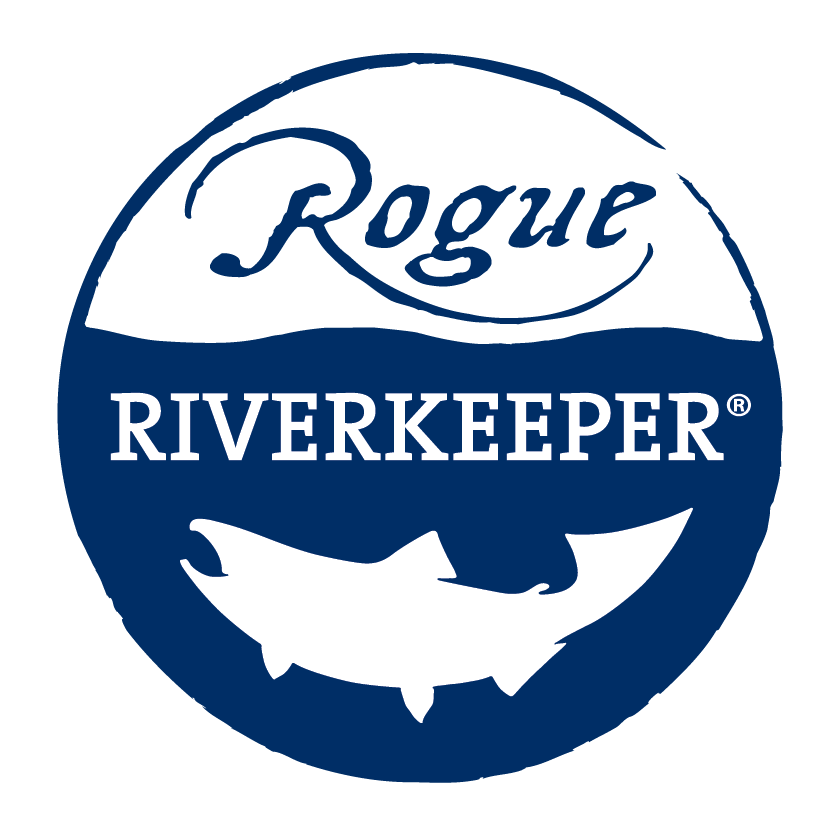Talking Points on Proposed Dredging of the Lower Rogue
RogueJets Inc. (or Jerry’s Rogue Jets), a commercial jet boat company offering high speed boat rides to tourists in the lower Rogue River, is requesting to dredge over 1,000 cubic yards of sand, sediment, and gravel from 42 different locations within the Rogue River. Rogue Riverkeeper is working diligently to protect the Rogue River’s integrity by pushing for the denial of jet boat company’s recertification to dredge the river, but we need your help.
We are asking you to let the Department of Environmental Quality know that you do not support the exploitation of the Rogue River for the benefit of one company.
Here is a list of key points that Rogue Riverkeeper would like to bring to the attention of the DEQ regarding this proposed 401 Water Quality Certification for detrimental dredging activities on the lower Rogue River:
The proposed work period is scheduled for May 1 to September 30 when drought conditions are at their most extreme. Rainfall in the basin and subsequent flows during this period generally do not cause streambed sediments to be mobilized with depths of scour similar to those being proposed. Aquatic animals and habitats would be subjected to unnatural displacement, unnatural turbidity, and unnatural fine sediment deposition that rarely occur during this dry period.
Jerry’s Rogue Jets has held this permit for at least 15 years no longer classifying this work as “temporary”. And the approval of this permit would increase these activities for another 5 years.Therefore these dredging activities cannot be considered negligible or not significant due to their continued occurrence year after year.
The dredging is significant because coho salmon (federally listed as threatened) and its critical habitat would be adversely affected. Fall chinook salmon and other fishes may spawn in sediments redistributed downstream from the dredge sites. Chinook spawning is most likely at sites near Agness, OR. Salmon eggs deposited in these unstable sediments would likely have reduced egg-to-fry survival because the first winter flood would scour out many of the deposited eggs.
The applicant needs to provide information about the history of dredging and what prompted annual maintenance dredging in the first place. We believe the medium sized excursion boats would not need much if any annual dredging. Similarly, recreation sized boats would not need any dredging. We further assert that it is prudent to have the applicant’s boats be designed for the expected Rogue River stream depths and flows rather than dredging the river to accommodate the super-sized excursion boats. An alternative for analysis would examine curtailing the use of super-sized boats that require annual dredging in favor of existing medium sized boats that would require far less, if any, annual dredging.
Dredging is significant because benthic aquatic animals, eggs, and larvae would be displaced and likely die as a result of dredging. Riffles proposed for dredging are the primary food producing areas that support fishes downstream of the dredge sites. Many thousands of “half-pounder” rainbow trout depend on these riffles to provide food. Insect production would likely be decreased by dredging. Clams and mussels (if present) would likely perish. Lamprey juveniles (if present) would be displaced and suffer increased predation.
The dredging is significant because of turbidity increases and massive fine sediment deposition below the dredging sites would violate state water quality laws. It is important to note that while the amount of river sediment will be unchanged, the surface texture will be changed. Prior to dredging, streambed surfaces are dominated by cobbles and gravels. Subsequent to dredging, a large area of the streambed will be coated with harmful fine sediment for months.
This is an important time to voice your concerns about the detrimental effects dredging the Rogue River will lead to. Please help protect the Rogue by using these talking points and attending the public hearing this Thursday, June 30th at 6pm.
For more detailed information on the permit request made by RogueJets, check out our blog post “Hydrojet and Excavator Dredging Planned on the Lower Rogue River”.

